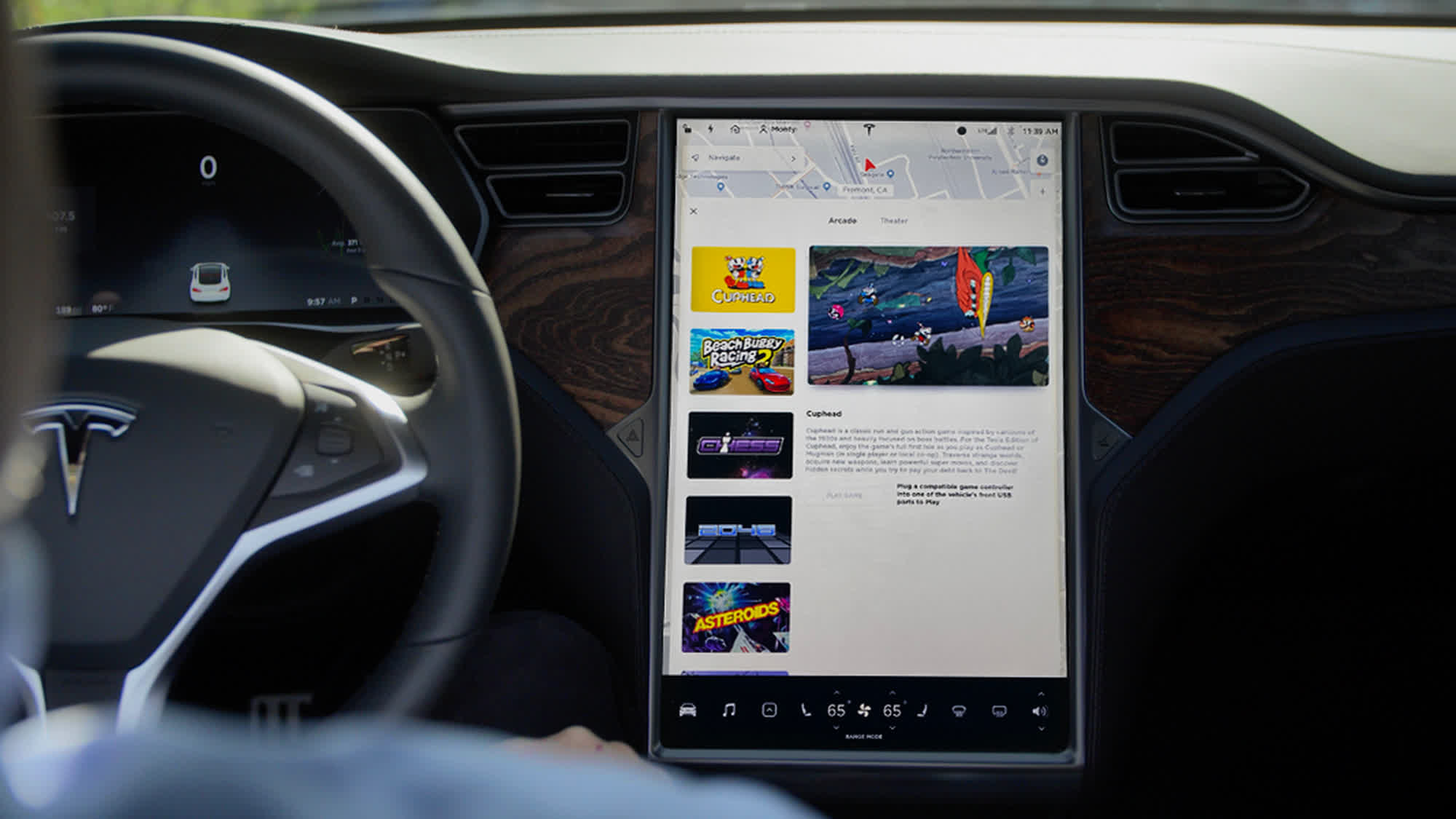What just happened? Tesla has recalled 54,676 Model X vehicles manufactured between 2021 and 2023 over a faulty controller that could fail to detect the level of brake fluid in the car and not display a warning light. Driving a car with low brake fluid could hamper braking performance, thereby posing a safety risk to the occupants, as well as other road users.
In a support article confirming the recall, Tesla said that it has already issued a free over-the-air (OTA) software update (version 2023.32.7) to fix the issue. The updated software "corrects the vehicle controller's set threshold range at low brake fluid levels" and ensures compliance with Federal Motor Vehicle Safety Standard (FMVSS) 135, Section 5.5.4.
The fix started rolling out on September 28, 2023, and is now available to all affected vehicles not using Full Self Driving (FSD) Beta. For vehicles with FSD Beta, the fix will be rolled out with the next scheduled software release. Model X owners can check if their vehicle is affected by the recall by using either Tesla's own VIN Recall search or the National Highway Transportation Safety Administration's (NHTSA) VIN Recall search tools.

The affected Model X vehicles were in violation of the Federal Motor Vehicle Safety Standard, as low brake fluid levels could alter brake pedal feel or negatively impact braking performance, thereby increasing the risk of collision. However, Tesla says that at this point, it is not aware of any crashes, injuries or deaths because of this bug.
Like most other Tesla recalls, the defect will be fully fixed with the software update, and owners do not need to take the vehicle to a workshop to address the issue. New vehicles will come with the fix preinstalled, meaning buyers won't have to worry about updating their cars to the latest software to ensure that they're not affected by the bug.
There's a lot of talk about whether these software fixes should be called 'recalls' or whether the NHTSA should find an alternative term for them. According to many Tesla enthusiasts, recall is a legacy term used to describe the process of physically hauling a vehicle back to the manufacturer or a workshop to fix a hardware problem, while most of Tesla's issues are easily solved with software updates. Either way, it's good that this particular problem was identified and fixed before any serious mishap despite some of the affected vehicles being on the road for two years.
